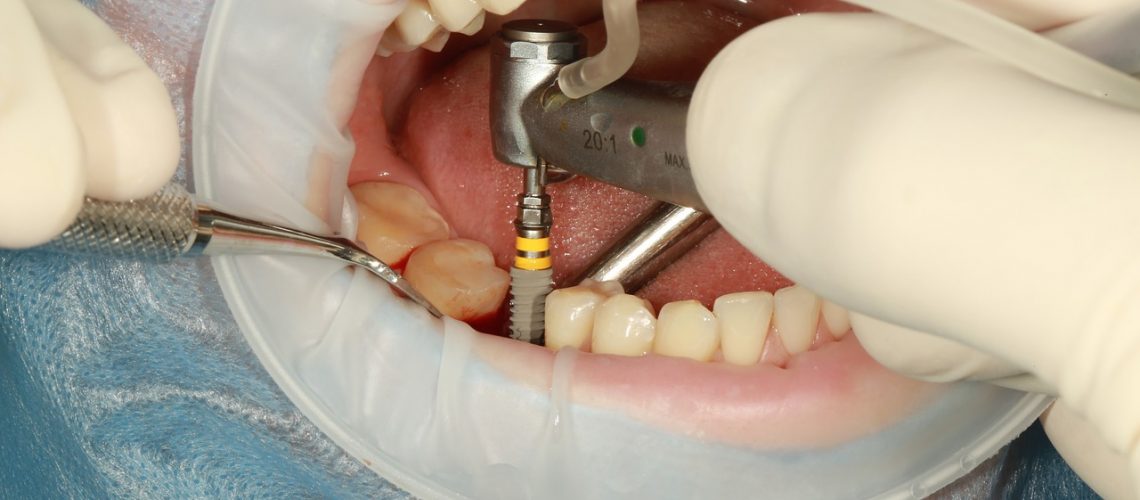The Facts About Dental Sense Uncovered
The Facts About Dental Sense Uncovered
Blog Article
Excitement About Dental Sense
Table of ContentsDental Sense Fundamentals ExplainedWhat Does Dental Sense Do?Little Known Questions About Dental Sense.How Dental Sense can Save You Time, Stress, and Money.
are medical tools surgically dental implanted right into the jaw to recover a person's capability to chew or their look. They give support for synthetic (fake) teeth, such as crowns, bridges, or dentures. When a tooth is lost as a result of injury or disease, a person can experience complications such as fast bone loss, malfunctioning speech, or adjustments to chewing patterns that lead to pain.Oral dental implant systems include a dental implant body and oral implant abutment and may also include a joint addiction screw. Dental implants. The oral implant body is operatively put in the jawbone in location of the tooth's root. The oral implant abutment is normally affixed to the implant body by the abutment fixation screw and expands via gum tissues into the mouth to support the affixed artificial teeth
(https://hub.docker.com/u/dentalsense1?_gl=1*1hbckpe*_ga*NDQyNDY0NDI5LjE3MzY1MTc3NTQ.*_ga_XJWPQMJYHQ*MTczNjUxNzc1NC4xLjEuMTczNjUxODA1MC42MC4wLjA.)Structure of The Oral Implant System choosing oral implants, speak with your oral company concerning the possible benefits and dangers, and whether you are a prospect for the treatment. Things to think about: Your total health is a crucial consider identifying whether you are an excellent candidate for oral implants, for how long it will require to heal, and the length of time the implant might remain in location.
Cigarette smoking might affect the recovery procedure and reduce the long-term success of the dental implant. The recovery procedure for the dental implant body might take several months or longer, during which time you generally have a short-term joint in place of the tooth. the dental implant treatment: Very carefully comply with the dental hygiene directions offered to you by your oral company.
Dental Sense Things To Know Before You Buy
Implant failure can result in the demand for another surgery to take care of or replace the implant system. Brings back the capacity to eat Recovers aesthetic appearance Helps maintain the jawbone from shrinking due to bone loss Maintains the health and wellness of the surrounding bone and gums Aids maintain nearby (neighboring) teeth secure Boosts quality of life Damages to bordering all-natural teeth during implant positioning Injury to the surrounding cells throughout surgery, such as sinus perforation Injury throughout surgery (as an example, fracture of surrounding jawbone) Poor feature, such as seeming like the teeth do not bite together generally A feeling that the tooth hangs or turning in place resulting from an abutment screw loosening Implant body failing (looseness of the dental implant body) due to systemic infection, which may be much more likely in people with unchecked diabetics issues due to neighborhood infection in bone and gums supporting the dental implant body as a result of postponed healing, which might be much more likely in people that smoke Problem cleansing the gums around the dental implant, leading to inadequate oral health Without treatment periodontal illness Post-surgical numbness because of nerve impingement or damage Always alert health care providers and imaging specialists that you have dental implants before any type of magnetic vibration imaging (MRI) or x-ray treatments.
FDA is not familiar with any type of negative events reported for MRI or x-ray procedures with oral implants. Dental implants systems are commonly made from products that comply with global agreement criteria of the International Organization for Standardization (ISO) or ASTM International. These standards have details of what makes a secure material.

A dental implant is a structure that changes a missing tooth. With screw-like gadgets, the surgeon inserts a dental implant right into the jawbone, and it functions as a support for an artificial tooth, called a crown. A gadget called an abutment connects the fabricated tooth to the oral implant. The crown is tailor-made to fit the individual's mouth and match the color of their teeth.
4 Simple Techniques For Dental Sense
Some individuals are not eligible for oral implant surgery. It is for dental cosmetic surgeons to operate people with: severe illnessuncontrollable metabolic diseasebone or soft cells illness or infectionIf these concerns are fixed, an individual can have the surgery. In, oral cosmetic surgeons avoid operating people with: If people with any one of the above go through oral implant surgical procedure, there is a higher risk of the dental implant failing.

Oral dental implant surgical treatment is an individualized procedure. It's not the very same for everyone. Yet the complying with offers a basic summary of what you can expect your dental professional, dental specialist, periodontist over here or prosthodontist to do: Put the implant operatively. Provide you time to heal. Connect the post and final crown, bridge or denture.
Next off, your doctor will carefully place the oral implant into your jaw. If your dental implant is near the front of your mouth, your dentist will make a short-term tooth for you to use up until you recover.
About Dental Sense
Your service provider can inform you what to anticipate in your scenario. Throughout the recovery stage, your jawbone should fuse to the oral implant. This process, called osseointegration, is critical for stability and lasting success. This process can take anywhere from three to 9 months. In many cases, it may take much longer.
As soon as your dental implant heals, your dental professional can attach the joint (little adapter blog post) and your last remediation (crown, bridge or denture). This typically takes about one hour to finish and may require a second minor surgical treatment. You shouldn't feel any discomfort throughout your dental implant procedure due to the fact that your provider will make use of medication to numb your periodontals.
Report this page